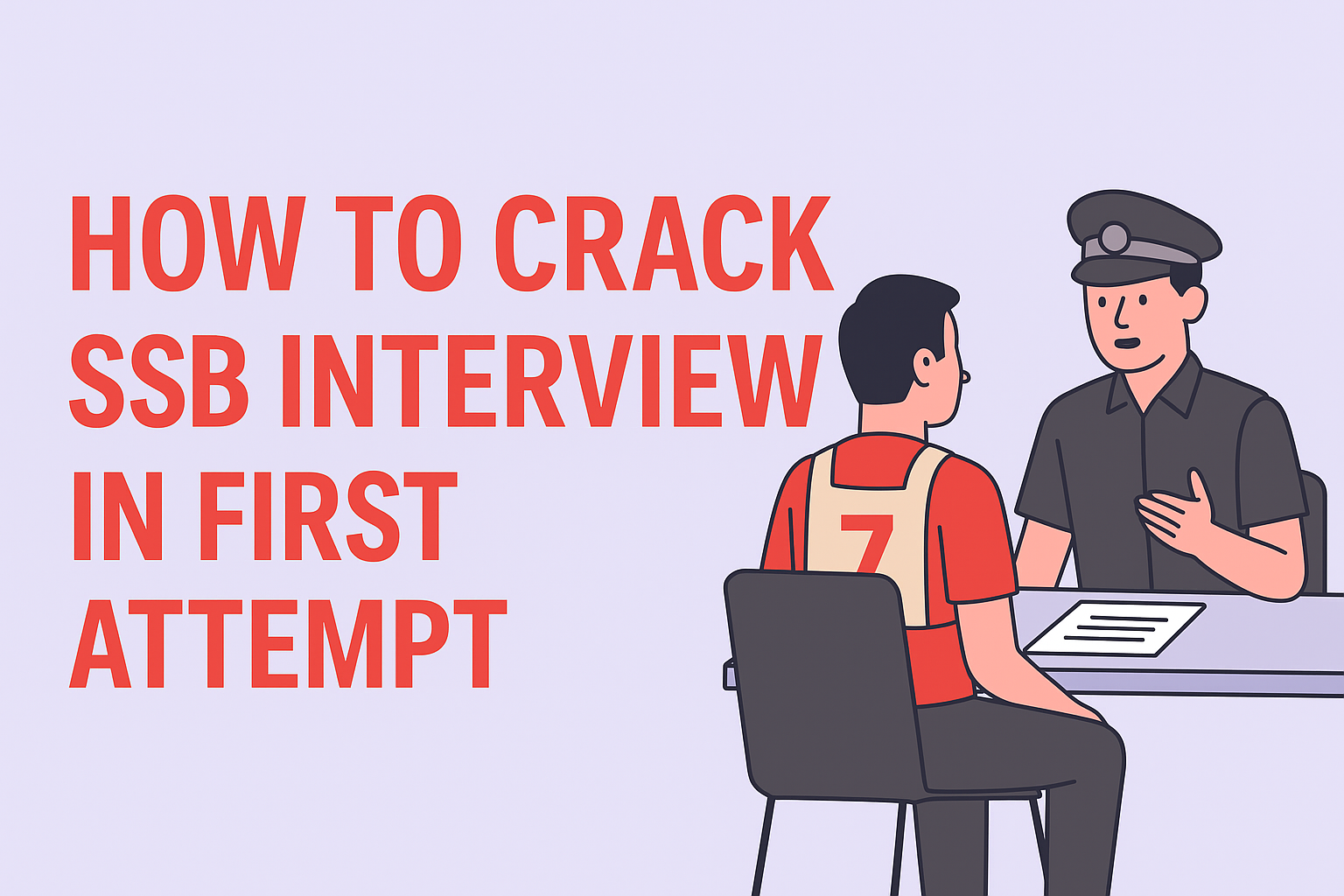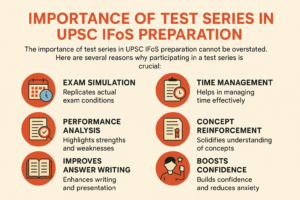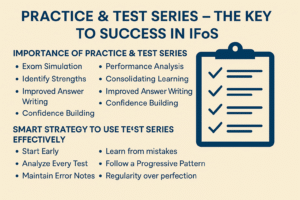Cracking the SSB (Services Selection Board) interview in your first attempt is a dream for many aspiring officers in the Indian Armed Forces. While the SSB is known for its intensity and unpredictability, a well-prepared candidate who aligns with the Officer Like Qualities (OLQs) has every chance to succeed on the first go.
This SEO-friendly article outlines the proven strategies, expert tips, and a day-wise plan to help you crack the SSB interview in your first attempt — whether you’re preparing for NDA, CDS, AFCAT, or any other defence entry.
Understanding the SSB Interview
The SSB interview is a five-day personality assessment procedure that evaluates a candidate’s intelligence, psychological fitness, communication skills, and leadership potential. It consists of:
Stage I: Screening Test (OIR + PPDT)
Stage II: Psychological Tests, GTO Tasks, Personal Interview, and Conference
It’s not about academic excellence — it’s about whether you have what it takes to be a leader and officer.
How to Crack SSB Interview in First Attempt: 10 Proven Strategies
1. Understand the SSB Process Thoroughly
Start by learning the day-wise schedule, the purpose of each test, and the kind of traits they assess. This helps you approach each task with clarity and intent.
Tip: Read “Let’s Crack SSB Interview” by Sinha & Sinha, and watch interviews of successful candidates.
2. Know the 15 Officer Like Qualities (OLQs)
SSB tests revolve around these OLQs such as leadership, initiative, confidence, reasoning ability, teamwork, etc.
Tip: Review OLQ categories and do a self-assessment to know your strengths and weaknesses.
3. Practice OIR and PPDT Daily
For Screening on Day 1, your focus should be on:
OIR (Officer Intelligence Rating): Solve verbal and non-verbal reasoning questions with speed and accuracy.
PPDT: Write a story based on a hazy picture and confidently narrate and discuss it in a group.
Tip: Practice picture-based storytelling with clarity, action orientation, and a positive message.
4. Strengthen Your Psychology Test Preparation
Psychological tests are time-bound and spontaneous. The best way to improve is through consistent practice.
TAT (Thematic Apperception Test): Write logical, progressive stories
WAT (Word Association Test): Respond positively and naturally
SRT (Situation Reaction Test): Provide quick, balanced reactions
SDT (Self Description Test): Be truthful, realistic, and confident
Tip: Don’t fake answers; be your natural self while showing officer-like traits.
5. Work on Communication and Group Discussion Skills
Many first-time candidates get nervous in GD, lecturette, and interviews.
Practice speaking on current topics
Watch news debates and defence discussions
Join a public speaking club or simulate GDs with friends
Tip: Speak clearly and confidently. Don’t dominate or interrupt others.
6. Get Physically Fit for GTO Tasks
The GTO round is physically demanding. You’ll be judged on teamwork, courage, endurance, and problem-solving in physical situations.
Tip: Start jogging, strength training, and body-weight exercises at least two to three months before your SSB.
7. Prepare Well for the Personal Interview
This is an in-depth conversation about your life journey, interests, education, family, and goals. You’ll also be assessed on social awareness and defence-related knowledge.
Tip: Fill the PIQ (Personal Information Questionnaire) form honestly, and prepare questions around your details.
8. Stay Informed About Current Affairs
Read newspapers like The Hindu or Indian Express
Follow updates on the Indian Armed Forces
Stay aware of geopolitical and national issues
Tip: Maintain a journal to track and revise important news.
9. Stay Natural, Honest, and Confident
The biggest mistake candidates make is trying to act like someone else. The assessors are highly trained to detect pretenders.
Tip: Focus on what you are, not what you think they want.
10. Practice with Mock SSBs or Coaching
Though coaching is optional, it can offer realistic mock interviews, feedback on your performance, and guidance for improvement.
Tip: Choose reputed SSB academies or mentors who offer psychological insight, not just tips and tricks.
Day-Wise Preparation Plan (Summary)
| Day | Tasks to Master |
|---|---|
| Day 0 | Confidence, positive mindset, documents ready |
| Day 1 | OIR + PPDT preparation |
| Day 2 | Psychology test drills + time management |
| Day 3 | Group discussions + outdoor tasks |
| Day 4 | Command task, individual obstacles, personal interview |
| Day 5 | Personality polish + reflect on performance |
Common Mistakes to Avoid in First Attempt
Mugging up stories for PPDT or TAT
Faking confidence or overacting during group tasks
Giving contradictory answers in psychology and interview
Losing patience or comparing yourself to others
Being too passive in group activities
Conclusion
Cracking the SSB interview in your first attempt is not a matter of luck — it’s about strategic preparation, personality refinement, and emotional intelligence. Work consistently on your communication, confidence, and fitness while maintaining a growth mindset.
SSB is not about finding a “perfect” candidate — it’s about finding someone trainable, capable, and honest.
Frequently Asked Questions (FAQs)
1. Is it possible to crack SSB in the first attempt?
Yes. Many candidates clear SSB in their very first attempt with focused preparation and the right mindset.
2. Do I need coaching for SSB?
Not necessarily. Self-preparation with the right guidance can be equally effective, but mock tests and feedback can boost confidence.
3. How long should I prepare before my first SSB?
Ideally, two to three months of regular preparation covering psychology, group tasks, and interviews.
4. What should I wear to the SSB?
Formal dress for interview and psychology tests. Sports attire for GTO tasks.
5. What are the chances of selection in the first attempt?
It depends on your performance, but SSB boards don’t discriminate based on attempt count — your personality matters most.
6. Will English fluency affect my chances?
Basic communication is enough. You can speak in Hindi, but English is preferred in group tasks.










